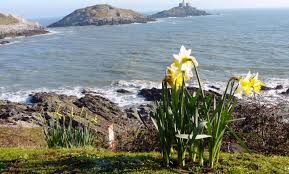Sunday 23 October 2022
We’re coming to the ending of the Church Year, and with this comes what we call the apocalyptic readings with their dramatic pictures of endings and calamities. That word ‘apocalyptic’ has been somewhat distorted by dramatic films about the end of the world, but that’s not the word’s meaning in the scriptures. It does include the end times, but it doesn’t stop there. The theme underlying apocalyptic scripture is that of the reversal of privilege and oppression – a message that Jesus continually hammers out. But apocalyptic scripture doesn’t stop with doom and destruction; it also sings of restoration and renewal – of God’s new creation. Today’s reading from the prophet Joel fits into this latter category very well. Continue reading Ending – or new beginning?








 St Ninian
St Ninian
















